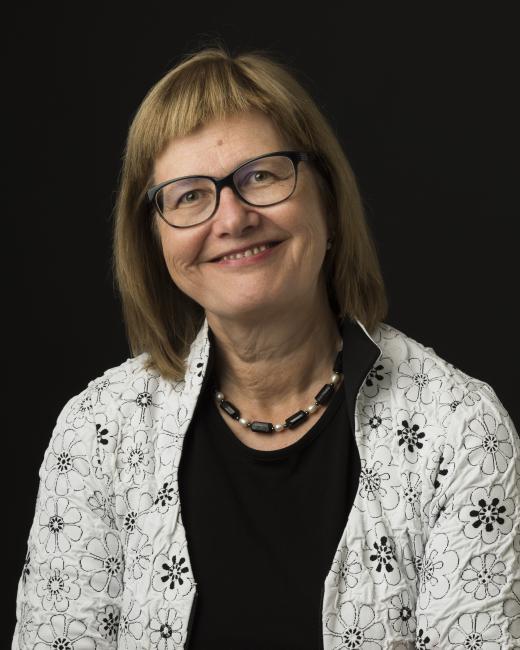Lise Iversen Kulbrandstad, Honorary Doctor at the Board of Teacher Education
Lise Iversen Kulbrandstad was born in Stokmarknes in northern Norway in 1958, but grew up in Drammen. Early on, she developed a love of books and writing and was a “pen-and-paper” child who learned through playing with letters and trying to spell. Because she could already read by the time she started school, she observed her classmates’ progress.

“My mum still smiles at the memory of me coming home to report how much reading progress my classmates had made. There has never been any doubt that I wanted to be a teacher.”
Lise Iversen Kulbrandstad trained as a teacher in Nordic languages, German, and special needs and migration education. During the 1980s, she worked as a primary school teacher in Oslo and constantly met children with immigrant backgrounds. She was dedicated to their schooling and when she had the chance to apply for a doctoral studentship at the University of Oslo, she knew what she wanted do: to gain new knowledge about the challenges immigrant pupils face when they have to use textbooks written in their second language.
In the early 1990s, Lise Iversen Kulbrandstad moved to Hamar to work with teacher education at the then Hedmark University College, which now forms part of the new Inland Norway University of Applied Sciences. She later became the vice-chancellor of the institution and has been involved in developing Norwegian teacher training and the role of teachers through a number of government assignments. Karlstad University became Hedmark University College’s most important partner.
“When I finished my term as vice-chancellor I had the opportunity to collaborate with my ‘sister environment’, the Centre for Language and Literature Education at Karlstad University. At present, I am involved in a project that forms part of ROSE, the research group on subject-specific education that has been designated a strong research environment by Karlstad University. I take a multidisciplinary approach to subject-specific education, learning and subject teaching. In the project I am involved in, researchers work with Grade 5 teachers of civics on the theme of migration.”
Lise Iversen Kulbrandstad thinks it is important to contribute to research-based knowledge to improve teaching in schools, particularly for those pupils who use their second languages at school.
“It takes a long time to become so proficient in a language that one can use it effectively when studying. I think all teachers have to develop a double identity to succeed – they have to be both subject teachers and language teachers.”
Lise Iversen Kulbrandstad regards her appointment as honorary doctor at Karlstad University as a real energy booster.
“I am first and foremost humbled by the appointment, but I am also proud, happy and inspired! I am not going to rest on my laurels, and will continue to develop the partnership between the Inland Norway University of Applied Sciences and Karlstad University. There is so much potential!”

